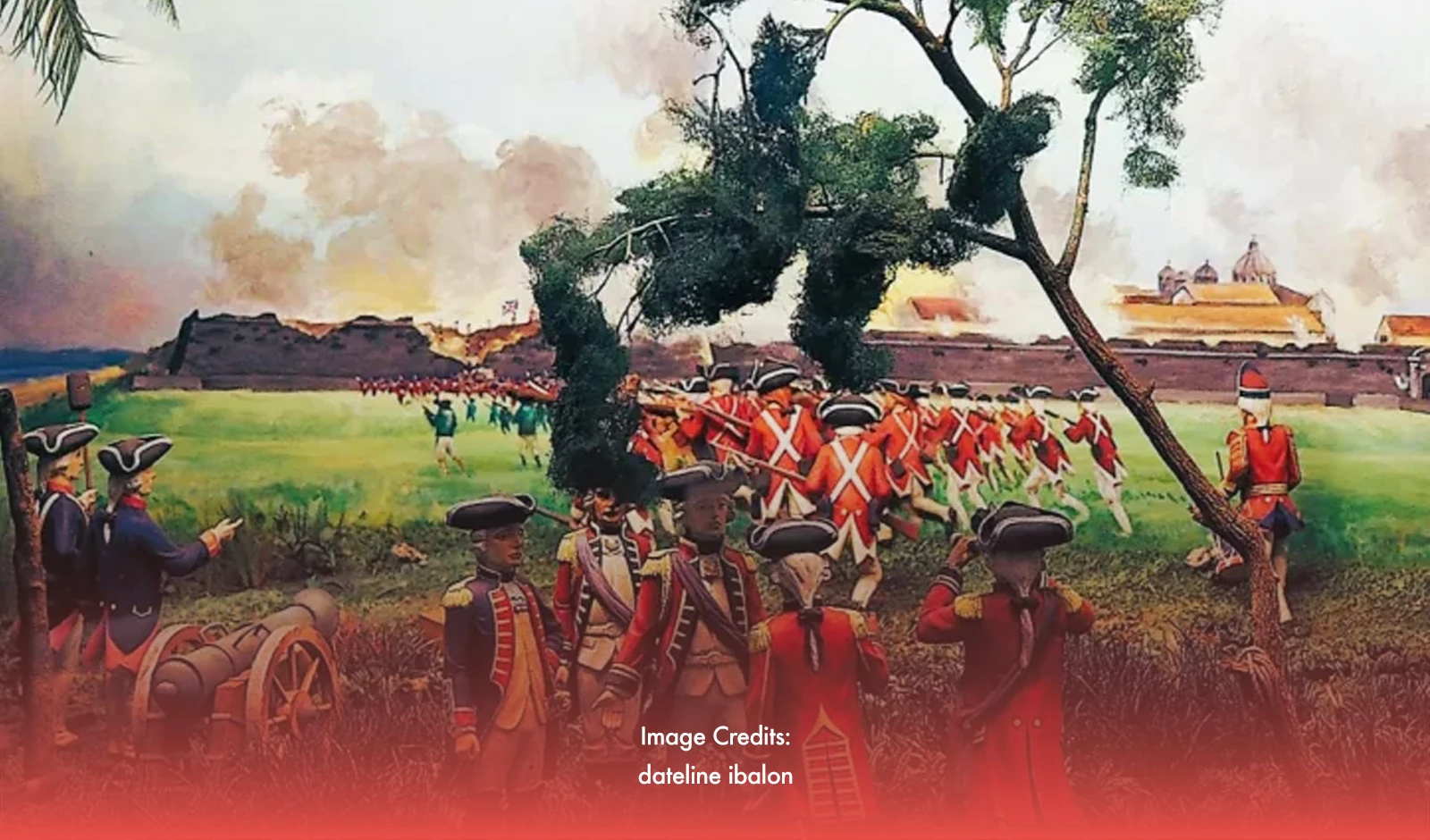The lengthy Spanish reign or the subsequent American occupation are usually the first things that come to mind when people think of the Philippines' colonial past. However, the British Empire–another colonial force–did govern the country for a brief but noteworthy time.
This lesser-known period of history, which lasted from 1762 to 1764, was a brief but significant occupation.
How it happened
The Seven Years' War (1756–1763), a worldwide battle involving many of the main European countries, was the larger backdrop for the British colonization of the Philippines.
Being on opposing sides of the conflict at the time, Britain attacked Manila–the capital of Spain's territory in the Philippines–in an attempt to reduce the Spanish power in the Pacific.
The Spanish colonial authority was unprepared for the invasion in 1762 when a British navy landed in Manila Bay. Under the leadership of Admiral Samuel Cornish and General William Draper, British soldiers swiftly overran the Spanish lines, taking Manila and ushering in a brief period of British rule over the northern Philippines.
Manila under the British rule
Manila residents experienced both positive and negative changes as a result of living under British control. In some respects, the British occupation offered Filipinos a taste of a foreign system of government while also upending the Spanish colonial order.
Some merchants and residents who had previously been constrained by Spanish regulations benefited from the British government's increased economic openness and commercial freedom in the city.
However, after Manila fell, there was a great deal of turmoil and looting as Indian and British soldiers, known as Sepoys, pillaged houses and places of worship. As it turned out, the local community suffered greatly as a result of the so-called Rape of Manila. The British were viewed as invaders rather than liberators by many Filipinos and Spanish citizens of Manila.
Short, and often forgotten memory
In the broader context of the Philippines' history, the brief time spent under the British Empire is frequently forgotten. The British occupation was a turning point that revealed the flaws in Spanish colonial rule and gave rise to early forms of Filipino resistance, even though it might not have had the same permanent impact as Spain or the US.
The tenacity of the Filipino spirit and the early indications of nationalism that would eventually lead to the country's struggle for independence are testaments to the legacy of British empire control, even though it has faded from the public's awareness.








